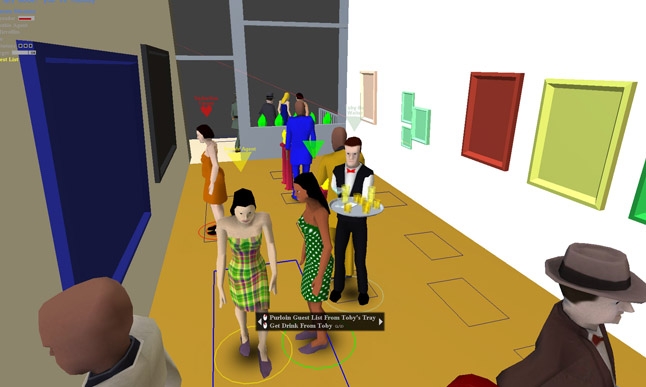

It became an esport because the game worked that way"Įven a decade after conception, it's a novel enough premise that calls for a multitude of minute design decisions with few obvious implementations or existing models to follow. "Counter-Strike didn't become an esport because Valve threw a bunch of money at it. To add a bit of tension to the proceedings, the party-going player is a spy who must accomplish missions while staying undetected the observing player is actually a sniper who must eliminate the spy with a single bullet. So what makes SpyParty so subtle and complicated? The game is a sort of reverse Turing test it's a competitive one-on-one game where one player tries to blend in at a party of AI controlled characters, and another watching the party from afar tries to guess which party guest is secretly human. "There are just some things you can't rush, and with a really subtle, complicated design, there are advantages to being able to like, be in the shower three months later without having worried about it, and then going, 'Oh right that's a good solution to that problem.'" "It's related to the whole about nine women can't make a baby in one month," Hecker said. The layout of each map presents a different set of challenges for the spy and the sniper Third, and perhaps most importantly, designing a game like SpyParty just takes time.

His current anxiety about the impending launch aside, Hecker reckons he's done a good job on that front. Second, Hecker said he's prioritized his health, doing his best to spend quality time with the family and avoid becoming another cautionary tale about an indie developer who drove themselves into the ground. "My motto on Spore was, 'overdeliver late.' It drives producers mad, but it means cool stuff comes." "I take a long time to do things, but I try to do a really good job when they finally come in," Hecker said. So what's taken so long? Hecker pointed to a number of reasons, one of them a slowness somewhat fundamental to how he works. "My motto on Spore was, 'overdeliver late.' It drives producers mad, but it means cool stuff comes" I'm going to be OK, which is one of the things that helps mitigate the anxiety a little bit. "So I'm not going to starve even if the game sells zero copies on Steam. "I can program a computer and I live in the Bay Area," Hecker said. That said, his apprehension is not entirely-and possibly not even primarily-financial in nature. And while the 24,000 copies he sold directly through the game's site like that helped pad the coffers, Hecker said his savings are now basically gone. That nest egg helped fund SpyParty's development, as did the decision to sell beta access to SpyParty for $15 about five or six years ago, before Steam launched its own Early Access program and made the concept ubiquitous. He'd been saving up his money to go indie when a round of layoffs accelerated the timeline on that move. Before starting full-time work on SpyParty, Hecker was an engineer and designer at Electronic Arts/Maxis on Spore.


 0 kommentar(er)
0 kommentar(er)
